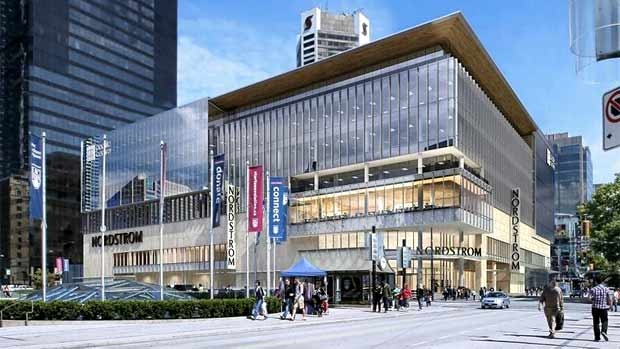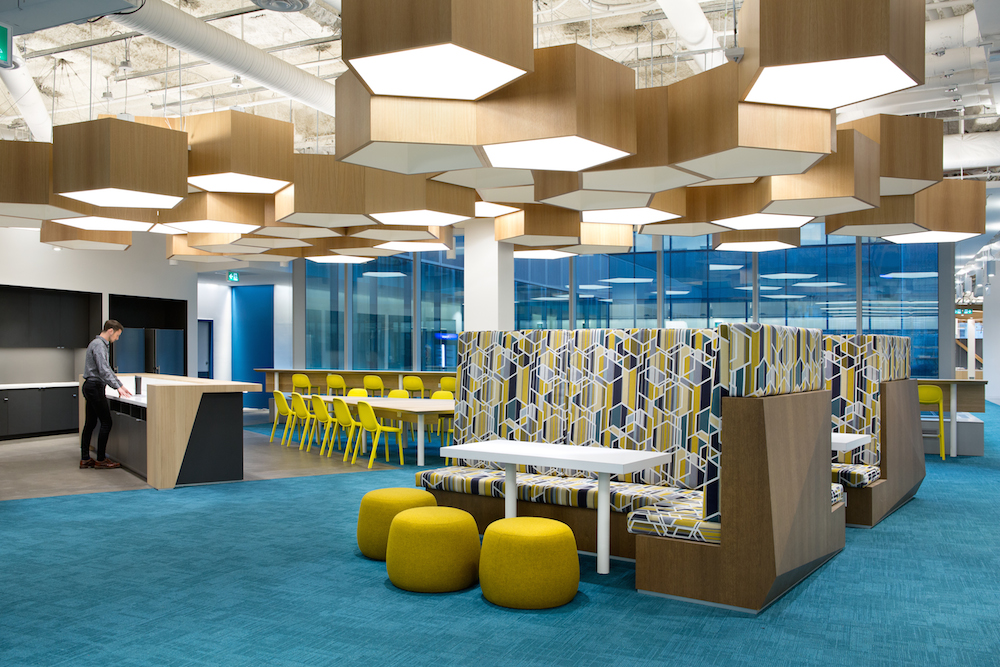 The New York Times suggests that smoother immigration policies and Vancouver’s ambitious technological hopes can spark a “Cascadia Innovation Corridor”, noting that Microsoft has already located a Vancouver office here with 750 employees and salaries totalling 90 million annually.
The New York Times suggests that smoother immigration policies and Vancouver’s ambitious technological hopes can spark a “Cascadia Innovation Corridor”, noting that Microsoft has already located a Vancouver office here with 750 employees and salaries totalling 90 million annually.
But wait a minute-Nick Wingfield’s article then describes the downer.“One serious obstacle to Vancouver’s tech ambitions is its head-spinning housing costs. The median price for a detached home in the metropolitan area in August was 1.4 million Canadian dollars (about $1.06 million), a 27.8 percent increase from a year earlier, according to the Real Estate Board of Greater Vancouver. In the San Francisco metropolitan area, the median single family home price was about $848,000, according to Zillow.”
The pay is also not as good. Median pay for tech related jobs in the San Francisco Bay area is $112,000 a year. In Vancouver it is just under $49,000 in Vancouver, adjusted to the American dollar. Director of the City Program at Simon Fraser University Andy Yan says it best, stating “We have San Francisco real estate prices with the incomes of somewhere between Reno and Nashville.”
Last month, the Premier of British Columbia and the governor of Washington signed an agreement “affirming their shared interest in creating regional economic opportunities for innovation in the technology sector”. Suggestions include the development of a high-speed rail line between Vancouver and Seattle, and/or a dedicated lane for driverless cars on I-5 and 99, the highways linking the two cities.
Vancouver has had only 1.78 billion dollars in venture capital going to local tech start-ups compared to 8.9 billion dollars in Seattle. But with immigration policies that can bring highly skilled tech workers in from other countries makes Vancouver an attractive place for big tech companies on the move. Hootsuite is an example of an early adapter, with the social media giant creating a start-up valued at over one billion dollars.
If we can provide more affordable housing and better salaries, will tech flock to the city?














Bring that fast train to Waterfront Station and build the glorious transit cathedral we deserve!
These discussions always miss the crucial piece: visas. Silicon Valley companies can’t get enough people into the country on H1-B visas because they are limited to 82,000 per year (and have been since the early 90s — before the internet age). Even then, H1-B visas have a problem. To get one for a foreign employee, a company has to spend thousands of dollars, wait until a lottery is done in April and then announced in June to see if the application is approved, and then wait until October to bring the employee on board. And when the employee arrives, there’s nothing to keep them with the company. They can apply to move to another company for the remainder of their 3 – 6 year visa.
So the big companies do a work-around. They start up branch offices in visa-easy places like Canada, bring in people from around the world, employ them for one year and then move them on L-1 inter-company visas to Silicon Valley. As a bonus the company gets an indentured servant because the L-1 isn’t transferrable to another company. To remain in the US, the employee is stuck with the company.
In other words, Vancouver has become a flow-through immigration hub for the big companies. This was made abundantly clear in a Vancouver Sun article (ironically on the cost of housing) where a tech employee lamented that 95% of all the employees he had worked with in the first year of the Big Silicon Valley company’s new Vancouver office had gone to Silicon Valley. He blamed housing but perhaps he didn’t get the memo. They were in-transit to Silicon Valley anyway.
And for all the talk of the high price of housing in Vancouver being the big obstacle to keeping young tech people (and yes, I agree with this), an even bigger obstacle is the low wage structure. When the “best and the brightest” are offered only $40k CDN (as young friends of mine have been recently), they look around and say WTF? One of those young friends went to Silicon Valley and was making 3 times that amount within 3 months.
There is definitely a hiring challenge for tech companies looking to set up shop here given that a large percentage of the talent is eligible for a TN visa and could earn much more in the Bay Area or Seattle. I work as a developer for a Vancouver-based company and am frequently approached by recruiters for companies in the US (Although I have to turn them down since, as a PR and not a Canadian citizen, immigrating to the US would be a big challenge – also I prefer living here!).
Remote work is another tempting option (Earn the $$$ while still living here) but not one that helps building a vibrant “scene” as much. Nor do big companies who open offices here simply to facilitate intra-company transfers to their California HQs (Facebook, Twitter) – although the people at the new MS office insist that this is not the case for them.
A clear case of cause and effect: letting in a lot of immigrants keeps a steady stream of workers flowing to depress wages. Exactly the same thing the TFW program did/does. I guess the prospect of working in North American tech is worth the price of sharing a one bedroom apartment with two of your coworkers. It does make one wonder why we aren’t training enough workers for these jobs here at home.
Author
Reblogged this on Sandy James Planner.
I work in the tech industry and used to live in Vancouver (currently on a sabatical in Costa Rica for a year or two). Anecdotally, from my friends and colleagues still in the industry in Vancouver, the scene is great for the worker and getting more difficult for the locally based startups.
As more and more large tech companies open shop here, their starting salaries are approaching Bay Area salaries. The local tech startups are finding it hard to compete and offer similar salaries.
I have one friend who quit a job at a successful Vancouver-based startup and started working at Salesforce for 1.5x his previous salary.
This is mostly good news, I think. Salaries for employees go up, and these people can almost afford to continue living in Vancouver. The difficulty is that there is now a brain drain with local startups who can no longer afford to hire at the salaries they were accustomed to. But at least these previous employees are staying put.
And to address a previous commenter about these large tech firms only having a place in Vancouver to skirt around H1b visas. Originally, that was Microsoft’s strategy, but they have since changed it. Same with Amazon and Facebook. All of these companies are producing mission-critical software in Vancouver.
As things are, this is 80% good news for Vancouver. We just need to leverage this and ensure that we can still produce more locally grown companies.